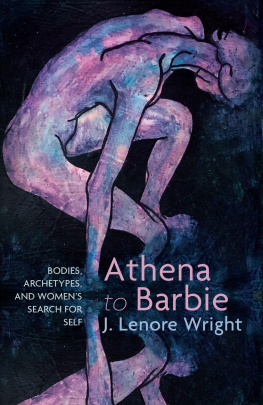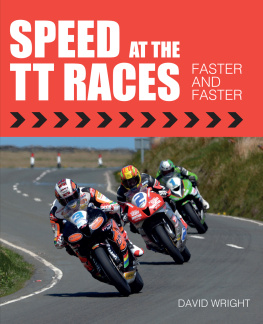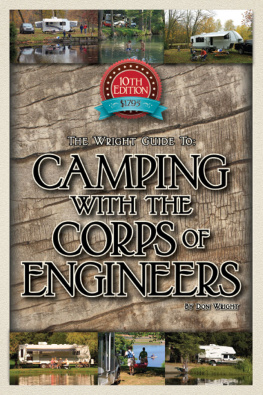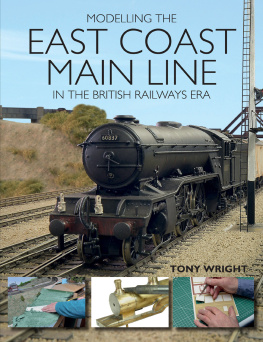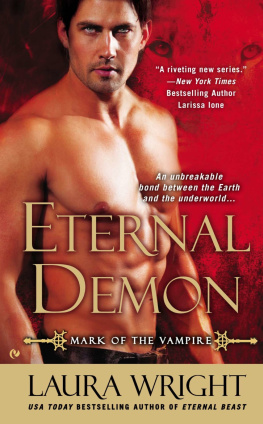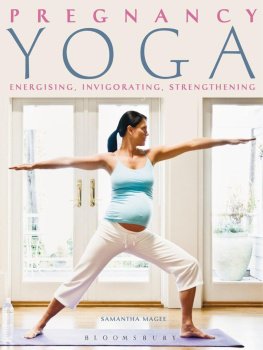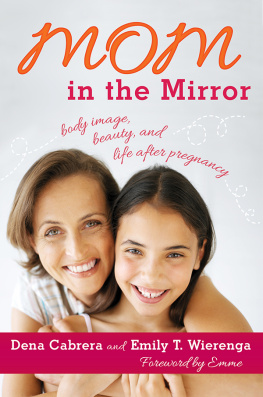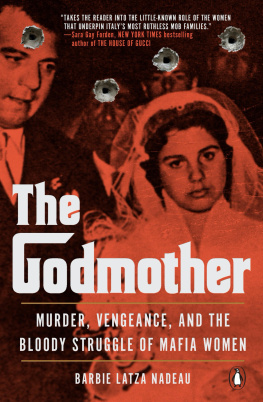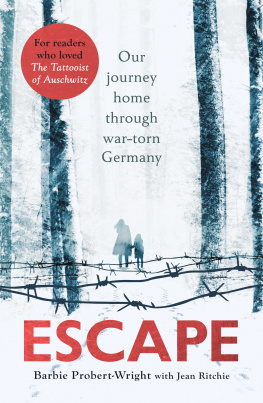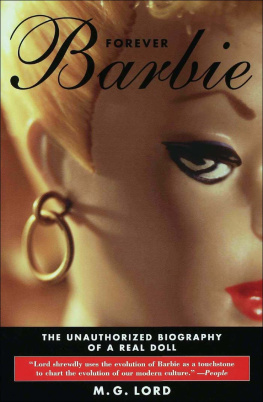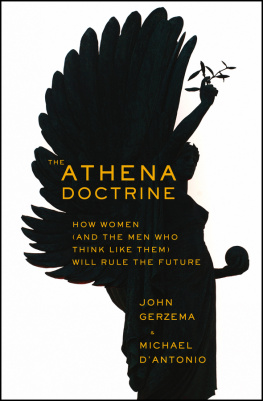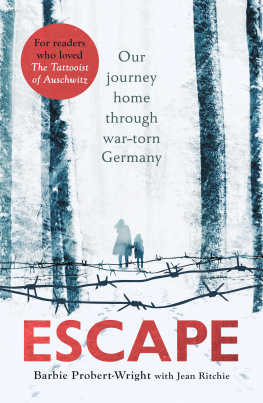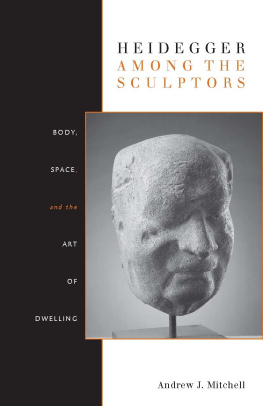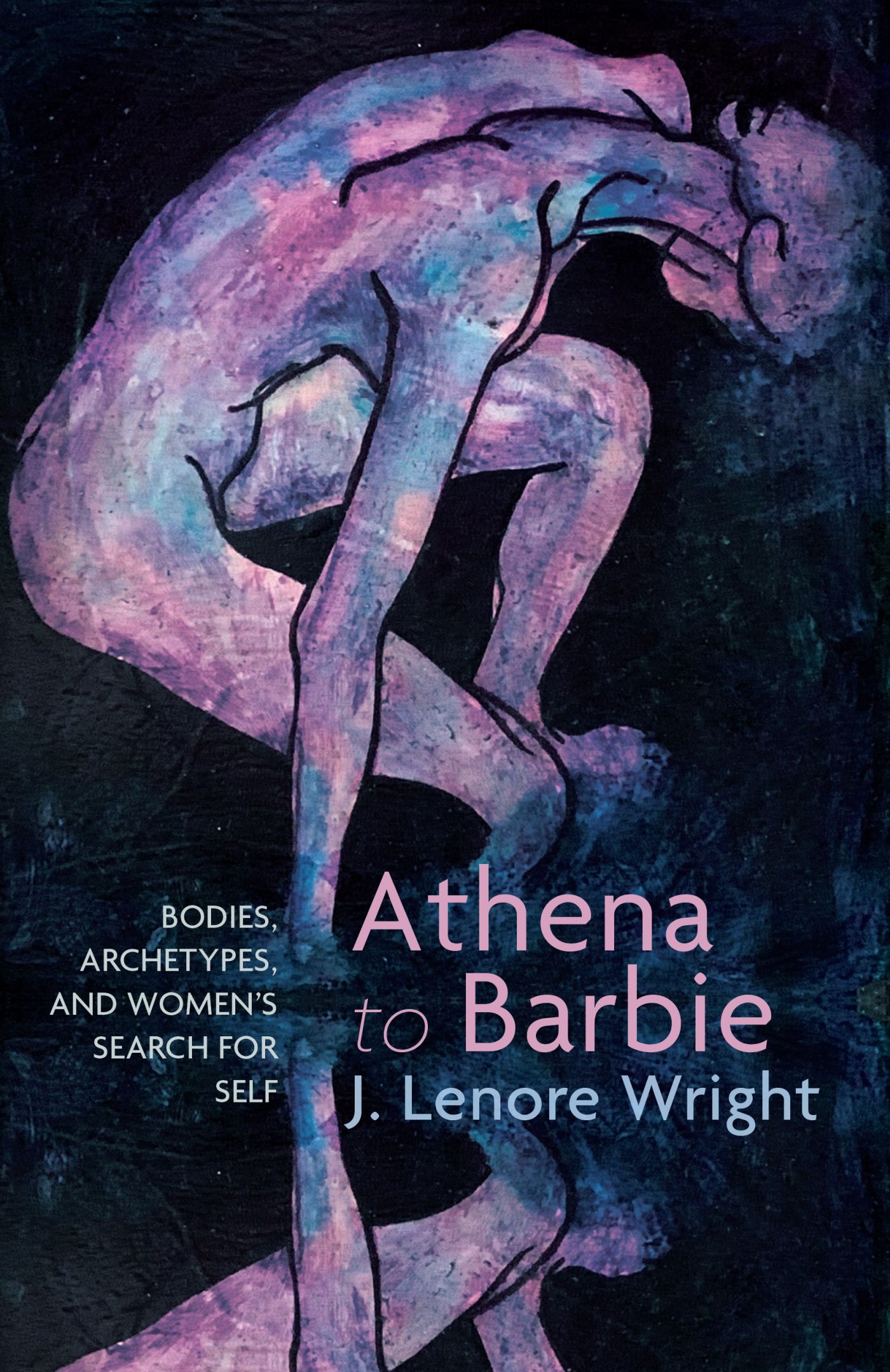
Praise for Athena to Barbie
An empowering perspective on female identity, delivered in a thoughtful and thought-provoking way. Feminist literature at its best.
Annelies Hofmeyr, creator of Trophy Wife Barbie
Lenore Wright offers readers a fresh analysis of how the female bodys multiple and at times competing archetypes impact contemporary womens identity. Wright sets herself apart as a philosopher willing to engage with all aspects of a womans identitynot just the physical and political, but also the spiritualand in so doing, to offer women a richer understanding of the forces that impact the construction of the self.
Danielle Tumminio Hansen, assistant professor of practical theology and spiritual care, Candler School of Theology, Emory University
Athena to Barbie achieves something rare and admirable: it engages well-known archetypes in a fresh way that illuminates womens agency, identity, and lived experience. Enjoyable to read, it provides provocative food for thought and guides readers from the negative moment of womens historic oppression toward the positive potential of a better future.
Heidi Bostic, dean, The Helen Way Klingler College of Arts and Sciences, Marquette University
Athena to Barbie
Athena to Barbie
Bodies, Archetypes, and Womens Search for Self
J. Lenore Wright
Fortress Press
Minneapolis
ATHENA TO BARBIE
Bodies, Archetypes, and Womens Search for Self
Copyright 2021 Fortress Press, an imprint of 1517 Media. All rights reserved. Except for brief quotations in critical articles or reviews, no part of this book may be reproduced in any manner without prior written permission from the publisher. Email or write to Permissions, Fortress Press, PO Box 1209, Minneapolis, MN 55440-1209.
Scripture quotations are from the New Revised Standard Version Bible, copyright 1989 National Council of the Churches of Christ in the United States of America. Used by permission. All rights reserved worldwide.
Cover art: Untitled oil painting by Sara D. Cocke Wright. Reprinted with permission by the owner.
Cover design: Savanah Landerholm
Print ISBN: 978-1-5064-8047-3
eBook ISBN: 978-1-5064-8048-0
While the author and 1517 Media have confirmed that all references to website addresses (URLs) were accurate at the time of writing, URLs may have expired or changed since the manuscript was prepared.
Contents
I conceived this book while writing a journal article about pregnancy loss. The essay was meant to shed light on the grief expectant parents experience after miscarriage. I employed the usual academic tools, from literature review to final edits. Done. And not done. Not really. And, as it turns out, probably not ever. I know intimately the physical and emotional wreckage that accompanies pregnancy loss. I also know that 1520 percent of pregnancies end in miscarriage. I have learned that partners grieve lost pregnancies, my husband, Henry, included. What started as a purely academic endeavora phenomenology of miscarriagebecame, philosophically speaking, self-involved. Writing about miscarriage opened up the psychic space where I (perhaps we) store the defining fixtures of lifes emotional landscape: loss, rejection, and trauma as well as achievement, acceptance, and resolution. This book was born out of a single academic project, a collection of personal experiences, and an ongoing exploration of womens search for self.
Athena to Barbie exposes and honors womens bodily and psychic markings. I trace the search for identity with a womb and female form in a world that tells women who they are because of their reproductive roles and bodily parts. The real work of the womb (from the negative moment of womens historic oppression toward the positive potential of a better future) and the real work of feminist philosophy (from an identification with womans Otherness toward a resistance to sexist norms) requires an unraveling of the logic of womanhood. We must reconsider historic sources of self and establish generative understandings of what and who we are. Experiencing oneself as a woman demands a confrontation with the womb.
Archetypal ideals weigh heavily in womens search for self. Female archetypes produce idealized standards of womanhood that discipline the body and shape the mind. Archetypal ideals also weigh heavily in religion, politics, society, economics, and ultimately, in the status of women themselves. Athena to Barbie surveys four female archetypes that inform womens identity. Collective archetypal materialfrom imagery, inferences, and receptiondirects womens navigation of life in a presumptively reproductive body. Archetypes also influence how women exercise the agency and authority vested in the womb. I appeal to Simone de Beauvoir as I consider reproductive (and nonreproductive) female bodieswomen are their bodies in a way that men are not. Her account of female alienation and subordination in The Second Sex, along with her articulation, new at the time, of a womans loss of personal and social identity, coheres with feelings of failure, isolation, and malformation women associate with female embodiment. I draw on Virginia Woolf, who theorizes womens inability to articulate female experiences in A Room of Ones Ownwomen lack a language of their own because they have had too little education, privacy, and subsistence to form female literary traditions. Speaking about pregnancy and miscarriage from a philosophical perspective is practically inconceivable. More than 80 percent of academic philosophers are men; the life and language of philosophy are predisposed to male experiences of reality, experiences often formulated as universal truths. I deploy the radical Jewish feminist philosopher Andrea Dworkin, feminisms Old Testament prophet who cries out in the wilderness of female oppression. I am compelled by her argument that intercourse has a political meaningthat female subordination is inextricably bound up with the use of womens bodies for sexual gratification and, either intentionally or accidentally, reproduction. Intercourse is a key to womens lower human status. Beauvoir, Woolf, and Dworkin represent different streams of feminist thought. But they share a critical concern for the meaning, role, and value of female bodies and wombs. For women to become fully agential subjectspersons who exercise self-determination, enjoy self-respect, command authority, and exhibit integrityintercourse, pregnancy, and childbirth must undergo philosophical examination.
My analysis develops out of productive counterpoints that elevate the body without predefining its meaning. Jack Halberstam, Luce Irigaray, Julia Kristeva, Amy Mullin, Kelly Oliver, Adrienne Rich, Sissel Undheim, Cynthia Willett, and Iris Marion Young treat embodiment as a site of resistance to rather than complicity with bodily control. Their positions on gendered subjectivity include the claim that pregnancy is (or can be) a creative and expansive experience rather than a reductive and disempowering act. Many helpfully problematize the female condition without erasing the feminine body entirely. They refine the question of womanhoodfrom trans-womanhood to cis-womanhoodand make space for persons who exemplify new performances of woman, performances that overlap, parallel, and intersect one another.
Archetypal bodies and the various meanings of pregnancy they signify can serve as a powerful heuristic for living as a woman. Retheorizing pregnancy can create new understandings of embodiment and contest established meanings of femininity. Reimagining womanhood and recontextualizing archetypal knowledge can yield positive readings of the pregnant subject by encompassing both the realization that women have suffered oppression vis--vis pregnancy and the hope that women can recast pregnancy as an empowering experience. Assigning positive value to female bodies and the labor they perform helps disclose the forces that diminish womens lives and push back against them. Pregnancy can serve as a site of feminist resistance to oppression, enable a reclamation of female freedom, and expand the experience of becoming a woman. All women, whether or not they are mothers, must negotiate the womb.
Next page
